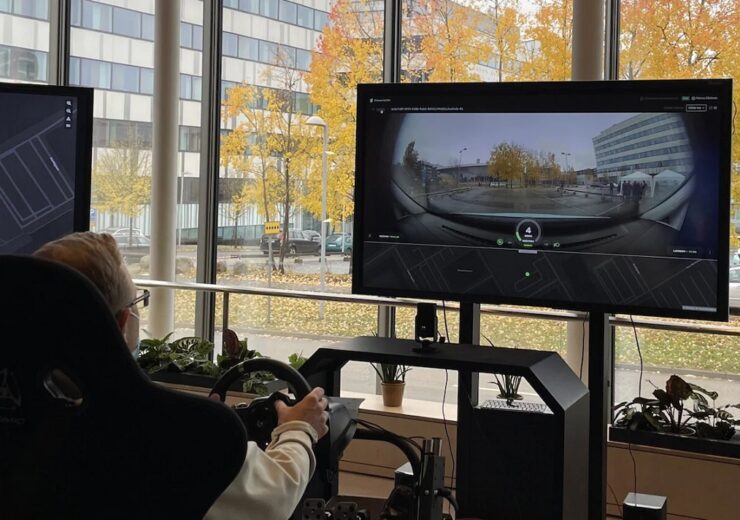The trial was conducted to study how 5G and remote monitoring of vehicles via control towers could help in the roll out of self-driving electric buses in urban areas

A bus operator in the control tower during the 5G Ride safety trial in Kista, Swede. (Credit: Telefonaktiebolaget LM Ericsson)
Swedish networking company Ericsson and partners have conducted a trial to test new safety measures for the 5G Ride self-driving bus project.
The trial was conducted near Ericsson’s company headquarters in Kista, Stockholm.
It was carried out to validate remote digital monitoring and on-board digital safety services to take 5G self-driving bus project closer to full operations.
Debuted in September 2020, the project is a collaboration between Ericsson, Urban ICT Arena, Intel, Keolis, T-Engineering, and Telia. It started with the inauguration of a temporary bus route on the island of Djurgården, Stockholm.
The project partners have now tested new safety features for the introduction self-driving electric buses in urban environments.
The trial involved the study of how 5G and remote monitoring of vehicles via control towers could help in the roll out of the vehicles in urban areas.
Ericsson lead design technologist Marcus Gårdman said: “The 5G network’s unique technical features, including extremely high data speeds combined with low latency, means that the connected buses can respond in real time to commands from the centralized control tower.
“This delivers a critical and powerful foundation for the safe and secure remote-control of vehicles and is an important step to manage buses and public transport in a smart and sustainable way.”
Using a 5G connection and a combination of new digital safety features, Ericsson and partners have continued to develop the Connected Control Tower concept this year.
The concept is aimed at monitoring and managing fleets of self-driving vehicles on public roads and enhancing safety of passengers onboard.
Recently, the partners carried out tests using the self-driving 5G Ride electric minibus in Kista, Stockholm.
Technical solution for the 5G-connected control tower was delivered by Ericsson, while Telia offered connectivity in collaboration with Ericsson.
Chip maker Intel focused on analytics in the bus to enhance passenger safety and T-Engineering provided the vehicle and self-driving technology.


